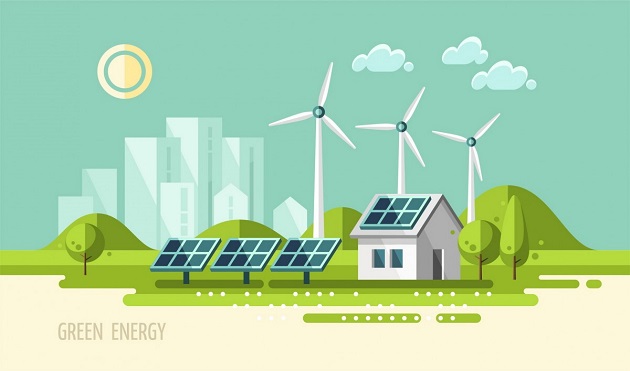Researchers studying the Swiss energy market have found that making Green Energy the default option for consumers leads to an enduring shift to renewables and thus has the potential to cut CO2 emissions by millions of tonnes.
The study, published today in Nature Human Behaviour, investigated the effect of changes in the Swiss energy market that presented energy from renewable sources as the standard option for consumers—the ‘green default.’
Both business and private customers largely accepted the default option, even though it was slightly more expensive, and the switch to green sources proved a lasting one.
Professor Ulf Liebe (University of Warwick), Doctor Jennifer Gewinner and Professor em. Andreas Diekmann (both ETH Zurich) analysed data from two Swiss energy suppliers who between them supplied around 234,000 households and 9,000 businesses in urban and rural areas.
Both companies restructured their products to offer a choice between conventional power, renewable power and “renewable plus,” one company in 2009 and the other in 2016. Consumers were assigned the renewable package unless they opted out, a behavioural mechanism known to have success in a range of settings.
- Supplier A saw a drop in private customers on the conventional tariff from 97 percent to 15 percent following introduction of the green default. By year 6, 80 percent of households were still on the green tariff
- For SMEs, the fall was smaller—from 97 percent to 23 percent, with 71 percent still on the green option in year 6.
- Supplier B saw similar results, with a change from 98.8 percent of households using conventional energy to just 11 percent after the introduction of the green default.
- For SMEs supplied by company B, the fall was from 99.3 percent to 15.3 percent on the non-renewable package.
Further analysis of customer data in the household sector showed that women were around 6 percent more likely than men to accept the green default, while women business owners were 8 percent more likely to stick with the renewable package.
It is sometimes argued that the introduction of green energy defaults leads to an increase in energy use—because the energy is ‘clean’ consumers are more relaxed about using it. Analysis of six years of energy consumption data showed no evidence of this.
Commenting on these results, Professor Liebe said: “Our study shows that ‘green defaults’ have an immediate, enduring impact and as such should be part of the toolkit for policymakers and utility companies seeking to increase renewable energy consumption, not only among household customers but also in the business sector.”
Large green default effects can considerably reduce CO2 emissions in countries with high fossil fuel share in their energy mix. Taking Germany as a case study and assuming a default effect of 80% in the household sector, the study calculated a CO2 reduction of about 45 million tonnes and a positive welfare effect of €1,240 million. While the impact of default effects can be massive, the exact CO2 reduction figures and welfare gains depend on the CO2 emission factor and social cost of carbon.

